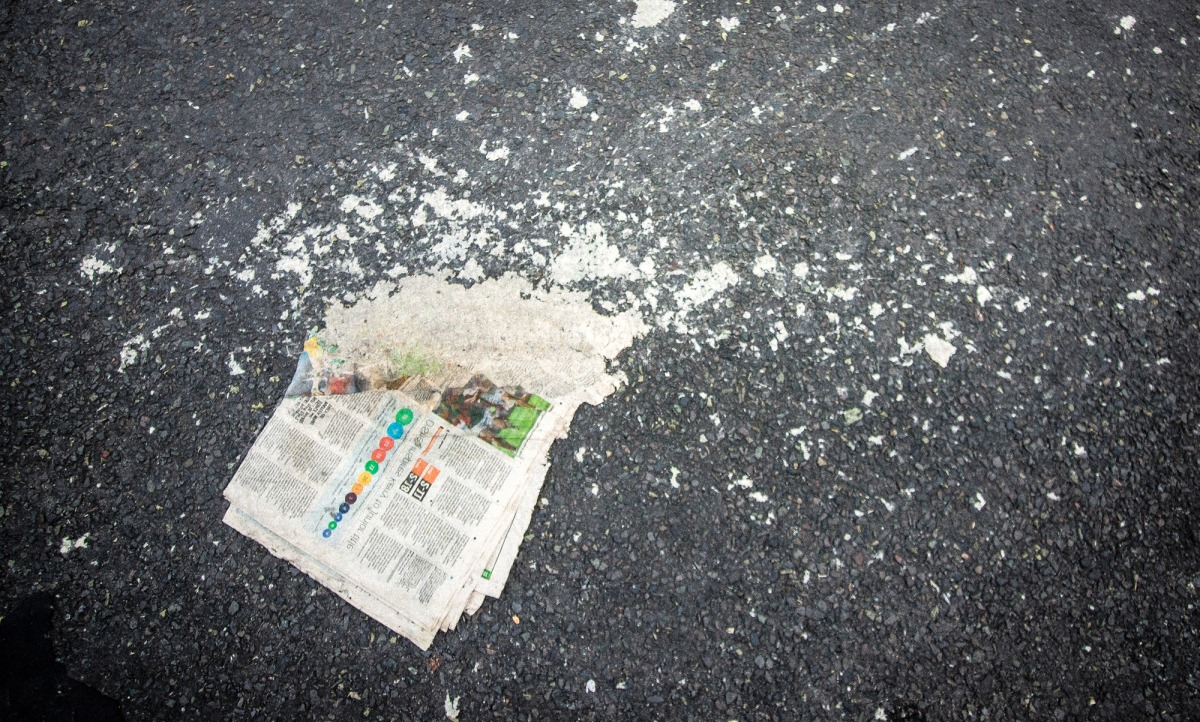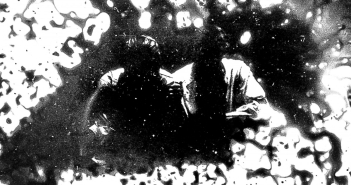We are sodden with fake news, hyped-up and incomplete information, and false assertions delivered non-stop by our daily newspapers, our televisions, our online news agencies, our social media, and our President.
Seymour M. Hersh, Reporter: A Memoir, New York (2018)
I doubt there are many career guidance counsellors now advising school leavers to become journalists. This is down to a serious depletion of the Fourth Estate, in Ireland and around the world, especially attributable to the technological rupture of the Internet. Investigative reporting is really being squeezed. This spells danger for our democracies, as power is not being adequately held to account.
In Ireland Mediahuis, a Belgian company which owns a host of newspaper titles including the Irish Independent, Sunday Independent, Sunday World and Belfast Telegraph recently announced a voluntary redundancy programme. It seems highly unlikely that any of these positions will be re-filled once “re-structuring” is complete.
In 2022 the profitability of that company’s Irish operation fell considerably (€117.3 million to €65.3 million) from the heights of 2021, when the government’s Covid advertising bonanza was still in full swing. Although online subscriptions increased by 13% over that period, this does not translate into direct profitability.
I review in depth a recent history of dissenting journalism in 20th Century Ireland.
It is a concern for Irish democracy that the editors wonder whether it will be possible for future historians to compile two volumes on 21st century Irish periodicals.https://t.co/aRG0FSymnp— Frank Armstrong (@frankarmstrong2) June 22, 2022
Journalism, as an industry, is still reeling from the original sin of publishing online in the early noughties. Once a legacy publisher – the Guardian under Alan Rusbridger in particular – broke ranks and put “the news” online for free, the rest were forced to follow suit, with varying paywalls, or risk irrelevance.
Declining newspaper sales eventually brought an end to what now seems an Edenic era: when real journalism represented a viable career option for a young graduate, or even a person straight out of school.
In America the number of journalists fell from 60,000 in 1992 to 40,000 in 2009,[i] a pattern seen all around the world.
As revenues have diminished workloads have increased. Cardiff University researchers recently conducted an analysis of 2,000 U.K. news stories. This showed an average Fleet Street journalist was filing three times as much as in 1985. Or, to put it another way, journalists now have only one-third of the time they previously enjoyed to perform their jobs.[ii]
This gives rise to an unprecedented amount of what Nick Davies has defined as ‘churnalism’, as journalists become passive processors of ‘unchecked, second-hand material, much of it contrived by PR to serve a political or commercial interest.’[iii]
One suspects recent developments in AI will accelerate existing trends, and hollow out the industry further. A latter-day Napoleon might not now consider four hostile newspapers to be more formidable than a thousand bayonets, as government subsidies or a philanthropic grant might easily quell opposition.
There are a few bright spots on an otherwise bleak horizon – such as the vibrancy of contrarian podcasting – but it’s hard to disagree with the pessimistic conclusion of ‘the last great American reporter’ Seymour Hersh:
The mainstream newspapers, magazines, and television networks will continue to lay off reporters, reduce staff, and squeeze the funds available for good reporting, and especially for investigative reporting, with its high costs, unpredictable results and its capacity for angering readers and attracting expensive law suits.[iv]
We now encounter an industry captive to social media behemoths, who demand coin in exchange for boosting and blue ticks. In order to finance the few remaining full-time employees, legacy media relies increasingly on biased “philanthro-capitalism”. Moreover, without a steady sales income, the sensitivities of advertisers – including emanations of the state in the era of Covid – are also less easy to disregard.
By its nature, investigative reporting struggles against constraints, legal or otherwise. Indeed, Seymour Hersh’s frustrations with his employers in the New York Times over a lack of support for his investigations into corporate America in the late 1970s led him to hurl his typewriter out an office window at one point.
If current trends continue the practice of investigative journalism in legacy media will go the way of the newspaper boy and shorthand.
Is it any wonder then that surveys show that less than fifty percent of the populations of the UK and US trust mainstream media? The figure for Ireland is marginally over fifty percent, but falling.
In this country an aspiring journalist would want to be well insulated against poverty to challenge the dominant neoliberal consensus expressed through the print duopoly, and RTÉ. Having investigated any aspect of the state-corporate nexus a job applicant might have to field uncomfortable questions in any subsequent job interviews. Ireland is a small country after all, where whistleblowers are generally considered a nuisance.
Those decent ones still working within the profession must maintain a steely reticence, recalling Seamus Heaney’s poem about ‘politicians and newspapermen’ in Whatever You Say Say Nothing (1975):
‘O land of password, handgrip, wink and nod,
Of open minds as open as a trap,
Where tongues lie coiled, as under flames lie wicks’
Successive revelations of corruption among elected politician by what is essentially a two-man journalistic operation at On the Ditch – backed by Web Summit founder Paddy Cosgrave – serves to expose the paucity of investigative reporting among the dominant legacy players, where hundreds of journalists rarely, if ever, land direct hits on the political class. Some are obviously frustrated in their efforts, while others are presumably selected for deference.
F**king Ditch
Without The Ditch, Robert Troy would still be a Minister, without The Ditch, Damien English would still be a Minister – no wonder you are attempting to undermine the Ditch, because they have been quite successful in exposing corrupt, unethical practices by… pic.twitter.com/dPPr7mQRLF
— Mick Caul (@caulmick) April 27, 2023
Tánaiste Micheál Martin’s crass characterisation of the founders of On the Ditch ignores the existence of a revolving door in Ireland between media and politics that has long inhibited criticism.
In Irish journalism today, a little investment goes a long way, especially when combined with a willingness to contend with defamation actions, and the more insidious methods that have been employed by emanations of the state in the recent past.
We hear repeated warnings on RTÉ and in print about the dangers of conspiracy theorists and the purveyors of disinformation. This blithely ignores that, time and again, mainstream media has erred in its assessments and failed to provide an adequate account of “the facts”, let alone acknowledge their own internal contradictions.
In Ireland the collective failings of the media came to a head during Covid, when a cabal of civil servants unlawfully usurped power from elected politicians and set in train an unprecedented spending bonanza. There have been few if any sustained investigations into how all that money was spent from a media that was awash with advertising revenue. Nor was there significant dissent from clearly damaging policies, such as extended school closures, or the undermining of previously sacrosanct civil liberties.
Then the Covid crisis gave way to the Ukraine crisis – in what appears a continuation of the Shock Doctrine – and we find a fresh wave of manipulation seemingly designed to nudge a reluctant Irish public into acceptance of NATO membership. Even a token left-wing voices in the mainstream media often reveal themselves beholden to the dominant interest.
It is instructive how many mainstream journalists seem inclined to undermine the case for neutrality, despite successive opinion polls showing the Irish public overwhelmingly wish to remain non-aligned, or militarily neutral. There are some obvious conflicts of interest, at the very least.
It is both our greatest strength and greatest weakness in Ireland that as English-speakers we are subject to relentless propaganda, but are equipped linguistically to cut through the Gordian Knot.
Key critical skills are, however, often lacking, in large part due to an Irish education system that has downgraded the humanities and social sciences, and which according to the OECD’s Andreas Schleicher must avoid producing ‘second-class robots’ – the obvious implication being that is exactly what it currently produces.
Perhaps this explains the cacophony of bewildered voices on social media that lapse into outlandish conspiracy theories. False prophets like John Waters offer a vision of a return to de Valera’s Ireland, which was in many respects a miserable, post-colonial epoch with no place for youth or vibrancy.
Foreign friends wonder why the Irish people are so passive when it comes to housing and securing other rights vis-à-vis the state and dominant corporations. The absence of investigative reporting and critical insight is crucial to maintaining this status quo, where young workers are fleeced by landlords, including REITs that barely pay tax in this country.
Frank Armstrong examines RTE kitsch on Dermot Bannon's Room To Improve, which allows shit to be denied and for everyone to act as though it doesn't exist.https://t.co/mUP5EV70r5@broadsheet_ie @BowesChay @BenPantrey @danieleidiniph1
— CassandraVoices (@VoicesCassandra) May 4, 2022
Stopping the rot, and saving Irish democracy, surely begins with reforming the public broadcaster, which barely maintains the pretence that it conducts investigative reporting. Sadly, it has long been beholden to advertisers.
The malaise has been brewing for some time. The director and author Bob Quinn in 2001 argued that RTÉ had become a:
bloated and swelling corpse, feeding the increasing number of parasites but incapable of directing itself because there is no life, no human spirit to quicken it … This despite the efforts of bright young men in advertising to string gaudy beads around the neck of the corpse, the vile body, in an effort to persuade the people of this country that their property is still working on their behalf. It is not. It is simply the vehicle for the frustrated fantasies of ad-men, the megalomania of insane technocrats and the sanctification of the acts of a conservative government. If one looks closely at those lines, one will see evidence of the greatest sell-out ever perpetrated on a nation – by the nation itself, through its sons.[v]
In the past there was at least one national newspaper that tended to go against one or other of the dominant centre-right parties, who have since entered coalition.
Any country lacking a media prepared to conduct hard-hitting investigative reporting and which prevents divergent opinions from being ventilated cannot remain an independent republic, or a genuine democracy, for any length of time. Despite a groundswell of support for the opposition, removing the current coalition from power without a change in the media landscape may prove extremely difficult, just as in other European countries.
Feature Image: Daniele Idini
[i] Alan Rusbridger, The Remaking of Journalism and Why it Matters Now, Canongate, Edinburgh, 2018, p.163
[ii] Ibid, p.181
[iii] Ibid p.181
[iv] Seymour M. Hersh, Reporter: A Memoir, New York (2018), p.5
[v] Bob Quinn, Maverick: A Dissident View of Broadcasting Today, Dingle, Brandon Books, 2001, p.xxxiv-xxxv




